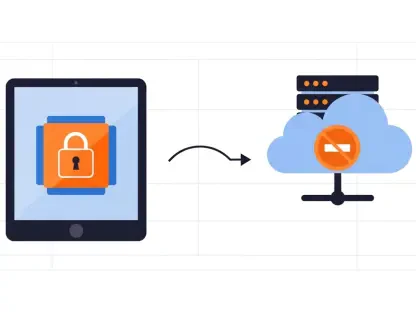In an era where artificial intelligence (AI) is reshaping industries at an unprecedented pace, access to vast and unrestricted web data has become a critical bottleneck for developers. Grass, the flagship product of Wynd Network, is stepping up to solve this challenge with a groundbreaking approach. Recently securing $10 million in bridge funding, Grass is poised to transform the landscape of AI data infrastructure through a decentralized bandwidth network built on the Solana blockchain. This innovative platform not only enables individuals to monetize unused internet capacity but also provides AI companies with the scalable, permissionless data access they desperately need for training and real-time inference. With strong backing from heavyweight investors, Grass’s mission to decentralize internet connectivity signals a shift away from traditional, centralized Web2 models. This development marks a significant milestone in addressing the data demands of AI, setting the stage for a deeper exploration of how Grass is driving change in this vital space.
Funding Milestone and Investor Confidence
Grass’s latest achievement of raising $10 million in a bridge funding round, co-led by Polychain Capital and Tribe Capital, underscores the growing trust in its vision to redefine data access for AI. This round, structured primarily as a token purchase, represents Polychain’s third investment in Grass, following earlier Seed and Series A contributions, while Tribe Capital highlighted the company’s operational excellence and client acquisitions as key reasons for their continued support. Notably, this funding was not initially planned but emerged organically alongside Grass’s rapid commercial expansion and user adoption. The financial boost positions Grass to scale its infrastructure and solidify partnerships with major AI labs, reflecting broader market confidence in decentralized solutions. This influx of capital is more than just a monetary gain; it’s a validation of Grass’s potential to disrupt conventional data pipelines and create a more accessible framework for AI innovation.
The investor enthusiasm surrounding Grass also sheds light on the strategic importance of its decentralized model in today’s tech ecosystem. Polychain and Tribe Capital’s repeated backing points to a belief in Grass’s ability to execute on its ambitious goals, particularly in addressing the pain points of AI data access through a blockchain-based network. Beyond the financial implications, this funding round signals a vote of confidence in Grass’s partnerships, which include significant contracts with leading AI organizations. The momentum gained from this investment is expected to accelerate Grass’s growth, enabling the company to refine its technology and expand its reach. As decentralized systems gain traction over centralized alternatives, Grass stands out as a frontrunner, with this funding serving as a catalyst for further innovation in how data is sourced and utilized for AI development across diverse applications.
Technology Driving a New Data Paradigm
At the heart of Grass’s mission lies a revolutionary technology that transforms idle internet bandwidth into a powerful resource for AI developers. Operating on the Solana blockchain, Grass enables users to contribute their unused internet capacity and earn rewards in the native GRASS token, which also supports governance and value accrual within the ecosystem. This decentralized bandwidth network allows companies to access public web data at scale, sidestepping the restrictions that often plague traditional large-scale web crawls. By creating a permissionless system, Grass offers a fresh alternative to conventional data access methods, ensuring that AI model training for text, video, and speech can proceed without the usual barriers. This innovative approach not only democratizes data but also redefines how individuals can participate in the digital economy, turning passive connectivity into an active asset.
Grass’s value proposition extends beyond mere access to data, focusing on scalability and adaptability to meet the evolving needs of AI applications. The platform’s ability to leverage distributed bandwidth ensures that it can handle the massive data requirements of modern AI systems, which often struggle under centralized constraints. Unlike traditional models that rely on a limited set of controlled access points, Grass’s network taps into a global pool of user-contributed resources, creating a robust and resilient infrastructure. This distributed architecture not only enhances efficiency but also challenges the dominance of Web2 giants by offering a transparent, user-driven alternative. As AI continues to demand ever-growing datasets, Grass’s technology positions it as a critical player in ensuring that developers have the tools needed to build and refine cutting-edge models without facing unnecessary hurdles.
Tackling AI Data Access Bottlenecks
One of the most pressing challenges in the AI industry today is the increasing difficulty in obtaining unrestricted, large-scale web data due to mounting internet limitations, a problem Grass directly confronts with its decentralized network. By harnessing user-contributed bandwidth, Grass facilitates internet-scale web crawls that are essential for training AI models across various domains, including text, video, and speech processing. Additionally, the platform supports real-time data needs for generative AI interactions, ensuring that inference processes remain accurate and up-to-date. Co-founder Andrej Radonjic has articulated a bold vision for Grass to evolve into a real-time AI data infrastructure, addressing both current and future demands of the sector. This approach offers a lifeline to developers grappling with data scarcity, positioning Grass as an indispensable tool in the AI ecosystem.
The significance of Grass’s solution becomes even clearer when considering the broader implications for AI innovation. Centralized data access often comes with restrictions that stifle progress, whether through regulatory barriers or technical limitations, leaving developers unable to fully realize the potential of their models. Grass circumvents these issues by creating a network that is not only vast but also inherently flexible, adapting to the specific needs of each AI application. This capability ensures that whether the task is building foundational models or enabling dynamic, real-time responses, Grass can deliver the necessary data without compromise. As internet restrictions continue to tighten globally, the platform’s decentralized framework offers a sustainable path forward, empowering AI developers to push boundaries and explore new frontiers in technology without being held back by outdated infrastructure.
Unprecedented Growth and Industry Adoption
Grass has witnessed remarkable traction in a short span, boasting 8.5 million monthly active users and establishing collaborations with approximately 20 organizations, ranging from nonprofits to academic institutions. This widespread adoption highlights the growing appetite for crypto-native data networks that prioritize transparency and decentralization. Over the past year, Grass has secured seven-figure contracts with prominent AI labs, demonstrating its ability to meet the sophisticated demands of the market. These partnerships are a testament to the platform’s reliability and effectiveness in delivering high-quality web data for AI training and inference. The surge in user numbers and institutional alliances reflects a broader trend of trust in blockchain-based solutions, positioning Grass as a leader in fulfilling the data needs of an AI-driven world.
Beyond the impressive user base, Grass’s commercial success signals a shift in how the industry perceives decentralized data infrastructure. The ability to forge meaningful relationships with major AI labs underscores Grass’s strategic importance, as these entities rely on vast, accessible datasets to remain competitive. Each contract and collaboration further validates the platform’s unique model of monetizing unused bandwidth while ensuring data integrity through blockchain technology. This growth trajectory is not merely a numbers game; it represents a fundamental change in how data pipelines are constructed, moving away from centralized control toward a more inclusive, distributed system. As demand for AI data continues to rise, Grass’s ability to scale and adapt to market needs ensures it remains at the forefront of this transformative wave, shaping the future of tech innovation.
Pioneering Decentralized Infrastructure Trends
Grass stands as a flagship example in the Decentralized Physical Infrastructure Network (DePIN) sector, utilizing blockchain technology to convert passive internet connectivity into a dynamic digital asset. By enabling individuals to contribute bandwidth and earn rewards, the platform challenges the entrenched centralized Web2 models that have long dominated the internet landscape. This shift empowers users to play an active role in the data economy, turning everyday connectivity into a source of value. Polychain’s Josh Rosenthal has commended Grass’s distributed architecture for its ability to outperform traditional systems, highlighting the competitive edge of decentralization. As DePIN continues to gain momentum, Grass’s model offers a blueprint for how real-world infrastructure can be reimagined through blockchain, addressing inefficiencies and fostering greater accessibility.
The broader implications of Grass’s approach in the DePIN space reveal a transformative potential for the tech industry at large. Centralized systems often struggle with scalability and transparency, issues that decentralized networks like Grass are uniquely equipped to tackle. By distributing control and resources across a global user base, the platform ensures resilience and adaptability, qualities that are increasingly vital in an era of rapid digital expansion. This model not only disrupts conventional data access but also sets a precedent for other sectors to explore decentralized solutions for infrastructure challenges. Grass’s leadership in this domain is a clear indicator of a paradigm shift, where user-driven systems are poised to redefine efficiency and equity in technology. As more industries recognize the benefits of such frameworks, Grass’s pioneering efforts will likely inspire a wave of innovation across the digital landscape.
Shaping the Future of AI Data Pipelines
Reflecting on Grass’s journey, the $10 million bridge funding round marked a defining moment in its mission to decentralize internet connectivity and address critical AI data needs. The platform’s ability to harness unused bandwidth via a Solana-based network provided a scalable, permissionless alternative to restricted web access, empowering AI developers with essential resources. Strong investor support from Polychain Capital and Tribe Capital validated Grass’s vision, while partnerships with major AI labs and a user base of 8.5 million showcased its market impact. Grass’s initial focus on training data laid a solid foundation, setting the stage for its ambitious pivot toward real-time inference support.
Looking ahead, the next steps for Grass involve scaling its infrastructure to meet the demands of real-time AI applications, ensuring that developers have continuous, unrestricted access for model updates. Continued transparency through the Grass Foundation in managing revenue distribution will be crucial to maintaining trust. As the DePIN sector grows, stakeholders should monitor how Grass adapts its distributed model to emerging challenges, potentially influencing broader adoption of decentralized solutions in AI and beyond.









